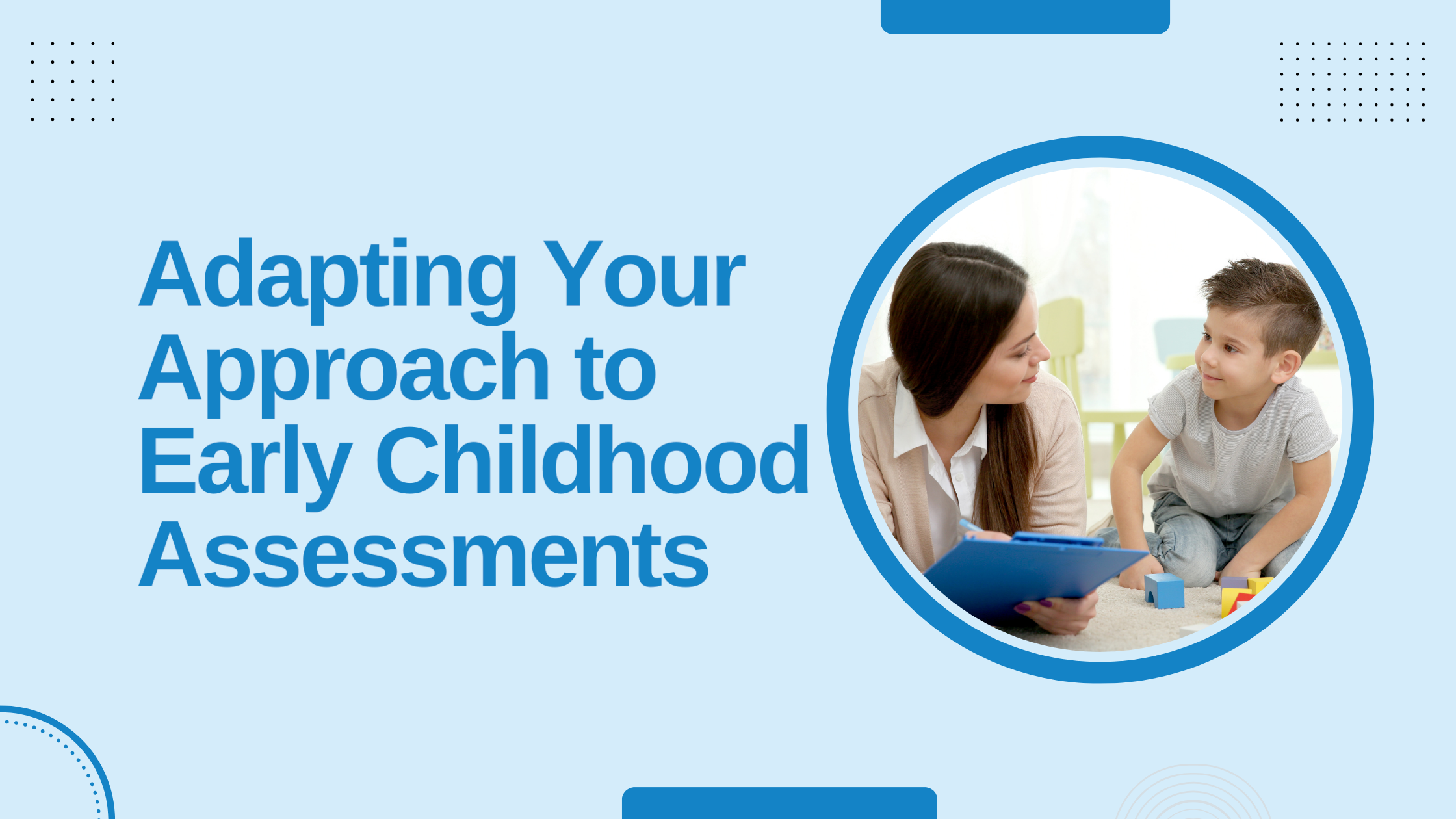Adapting Your Approach to Early Childhood Assessments

In the realm of child development, early childhood assessments are valuable and informative, promoting a child’s success both within and beyond the classroom. Central to this process are skilled examiners, who understand key developmental milestones and their appropriateness for each unique age group. With extensive experience, evaluators begin to possess an innate understanding of this checklist.
While health assessments play an important role in all comprehensive assessments, they are particularly essential in early childhood evaluations. By including a thorough parent interview, evaluators can identify the impact of specific health factors on the child's development. Early childhood assessments, which typically include a team of clinicians, should also place emphasis on the child’s adaptive skills, socialization, and language skills, and should always utilize extensive observations. With young children, there are often special considerations particular to this age group, specifically when assessing for characteristics of autism, evaluating English Learners, or examining educational or developmental implications related to the COVID-19 pandemic. In these instances, evaluators must be prepared to adapt their approach to assessments.
How to Approach Autism Assessments
- How do you recommend evaluating socioemotional and behavioral needs? To rule out the impact of environmental factors, carefully look out for characteristics specific to autism. There are specific milestones that should be developed organically, and play-based observations are useful in detecting atypical behaviors and characteristics.
“The observations are key. Writing down what we see, seeing them in multiple settings… those are things that backup whatever your gut feeling is telling you.” – Dr. Angela Viencek, PhD
- When should an autism diagnosis be made? While it is ideal for children to obtain the diagnosis and begin intervention early, findings reveal that the wait for a diagnosis after the initial autism screening can often exceed two years. The earlier the intervention, the better; some physicians are training to diagnose autism, ultimately reducing the wait time for developmental assessments.
- What is the preferred battery for assessing ASD? For children ages 3-5, the Autism Diagnostic Observation Schedule (ADOS) is the hallmark of autism assessments. Other assessments include the ASRS and SRS assessments.
- How do you approach assessing a non-verbal child? There are several non-verbal assessments that utilize more manipulatives. Alternative assessments, such as the Differential Ability Scales (DAS), focus more on problem solving rather than verbal language. With any assessment strategy, closely observing a child’s play skills, socialization behaviors, and sensory issues can unveil a thorough understanding of their development.
Understanding The Impact of Bilingualism on Assessments
When a child speaks more than one language at home, several considerations and complications play a role in their assessment. Understanding their linguistic environment at home becomes essential, and the quality and quantity of each language can impact them as well. For instance, if a child frequently speaks Spanish at home, struggles with English at school become understandable. Cultural differences should be thoughtfully considered throughout the assessment process.
Remember to connect with the child’s family, and if possible, communicate in the language in which they are most comfortable. This may require assistance from an interpreter and a larger team. By conducting an evaluation in both languages, a comprehensive understanding of the child’s needs is achieved, fostering a sense of comfort and recognition for the families involved.
If there is still a language barrier or the child is non-verbal, utilizing play-based, non-verbal, visual-motor, and socialization observations remain as appropriate options.
In the Context of COVID-19
In nearly all aspects, COVID-19 has impacted early childhood assessments tremendously. The number of referrals has been climbing, assessment strategies need to be modified, and there is the uncertainty of whether or not a child’s behavior is explained by the pandemic.
%20(1).png?width=750&height=750&name=Impact%20of%20COVID%20on%20EC%20Assessments%20Version%203%20Graphic%20(Square)%20(1).png)
Ultimately, early childhood assessments have the potential to pave the way for a brighter future for a child. With more and more experience, clinicians can help children receive proper support and interventions they need to thrive both in and out of school. To learn more about best practices in early childhood assessments, listen to the interactive discussion with Dr. Angela Viencek and Dr. Sarah Holman below.
.png?width=900&name=Selective%20Testing%20(1).png)


-1.png)